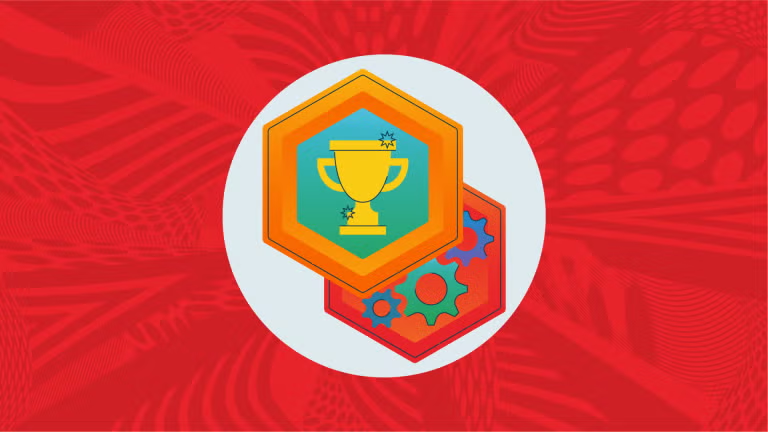In recent years, the world of education has been undergoing a massive transformation. One of the most notable changes is the rise of micro-credentials and digital badges, which are revolutionizing the way we perceive and acquire learning. These innovations are not just altering the educational landscape for students; they are also reshaping industries, influencing recruitment practices, and changing the way professionals continue their education. This article explores the development of micro-credentials and digital badges, their impact on lifelong learning, and their potential to enhance the education ecosystem.
1. What Are Micro-Credentials and Digital Badges?
Micro-Credentials: A New Way to Recognize Skills
A micro-credential is a certification that demonstrates an individual’s mastery of a specific skill or competency. These are typically smaller, focused learning experiences compared to traditional degrees, often requiring less time to complete. Micro-credentials can be earned through online courses, workshops, or other educational programs that emphasize practical knowledge and skills.
Unlike traditional degrees or diplomas, micro-credentials are designed to be flexible and personalized. They are highly targeted to specific job roles, industries, or areas of interest, enabling learners to upskill or reskill in a more agile and cost-effective manner. They offer a way for individuals to demonstrate their ability in a particular area without the commitment required for a full degree program.
Digital Badges: A Visual Representation of Achievement
A digital badge is a visual symbol that represents the completion of a micro-credential or specific achievement. These badges are typically displayed on digital platforms, social media, and professional networks such as LinkedIn. Digital badges contain metadata that offers detailed information about the achievement, including the issuer, the skill learned, and the criteria required to earn the badge.
Digital badges serve as a portable and easily accessible way for individuals to showcase their skills and accomplishments. They are a key feature of micro-credentialing systems and allow learners to collect multiple badges that represent a diverse set of skills and competencies. Badges can also serve as a tool for employers to quickly assess the qualifications of potential hires.
2. The Role of Micro-Credentials and Digital Badges in Lifelong Learning
The Shift from Traditional Education
Traditional education systems, while still essential, have increasingly struggled to meet the rapidly changing needs of the modern workforce. College degrees, once the gold standard for measuring education and skills, are often seen as inadequate for addressing specific job requirements or quickly changing skill demands. Micro-credentials and digital badges address this gap by providing more immediate, relevant, and targeted learning experiences.
These credentials allow learners to pursue learning paths that are more closely aligned with their career goals, personal interests, or industry demands. In a world where job roles are evolving faster than traditional educational programs can update, micro-credentials offer a way to keep up with the pace of change. They also enable individuals to take control of their own learning journey, ensuring that they acquire the skills needed for success in an increasingly complex job market.
Supporting Career Transitions and Reskilling
In the face of rapid technological advancements, many industries are undergoing significant transformations. Automation, artificial intelligence, and other technological innovations are reshaping the way businesses operate and the skills they require from employees. As a result, there is a growing demand for workers to reskill or upskill in order to stay competitive.
Micro-credentials and digital badges play a crucial role in this process. They offer a way for individuals to gain new skills quickly, without the long-term commitment associated with traditional education. These credentials are especially valuable for workers seeking to transition into new fields, as they can provide a tangible way to demonstrate newly acquired skills to employers.
For example, someone transitioning from a marketing career to a data analytics role could earn a series of micro-credentials in data analysis, machine learning, or Python programming. Each micro-credential would help build the skills necessary for the new role, while the digital badges would serve as verifiable proof of competence.
3. The Benefits of Micro-Credentials and Digital Badges
Flexibility and Accessibility
One of the most significant advantages of micro-credentials and digital badges is their flexibility. Learners can pursue these credentials at their own pace, on their own schedule, and from anywhere in the world. Online platforms, MOOCs (Massive Open Online Courses), and other digital education tools have made it easier than ever to access high-quality learning materials and earn recognized credentials without attending a traditional school or university.
This flexibility is particularly beneficial for working professionals, who can earn micro-credentials and badges in their spare time. The shorter duration of micro-credential programs also makes them more accessible to individuals who cannot afford to take extended periods off from work to pursue further education.
Affordability and Cost-Effectiveness
Traditional higher education can be expensive, and not everyone has the financial resources to pursue a full degree program. Micro-credentials offer a more affordable alternative by focusing on specific skills rather than broad academic knowledge. Because micro-credential programs tend to be shorter and more focused, they typically come at a lower cost, making them a viable option for individuals seeking to advance their careers without incurring significant debt.
For organizations, micro-credentials can also be a cost-effective way to provide training and development opportunities to employees. Employers can invest in targeted learning programs that address the specific skills their workforce needs, without the expense of sending employees back to traditional degree programs.
Credibility and Employer Recognition
A critical question about micro-credentials and digital badges is whether employers will recognize them as legitimate and valuable. The good news is that more and more employers are beginning to acknowledge the importance of micro-credentials in today’s workforce. Companies are increasingly looking for candidates who can demonstrate practical skills, and micro-credentials provide a clear and verifiable way to do so.
Leading employers, such as IBM, Microsoft, and Google, have embraced micro-credentials and digital badges as part of their recruitment and training programs. Many job listings now specifically mention certain badges or micro-credentials as desirable qualifications. In fact, some companies are even partnering with educational platforms to create tailored badge systems that align with their internal skill requirements.
4. Challenges and Considerations
While the rise of micro-credentials and digital badges presents exciting opportunities, there are also challenges and considerations that need to be addressed for their full potential to be realized.
Lack of Standardization
One of the primary concerns with micro-credentials and digital badges is the lack of standardization. Since there are multiple platforms and organizations offering these credentials, it can be difficult for employers and learners to know which credentials hold the most weight. A lack of universal standards could lead to confusion and undermine the credibility of digital badges and micro-credentials.
Efforts are being made to address this issue. Organizations like the IMS Global Learning Consortium and the Digital Credentialing Alliance are working on creating frameworks and standards to ensure that micro-credentials and badges are consistent, recognized, and meaningful across industries and educational platforms.
Quality Control and Verification
Another challenge is ensuring the quality of micro-credential programs. As the market for these credentials grows, there is a risk that low-quality programs may emerge, leading to badges and credentials that do not reflect true mastery of a skill. Learners and employers alike need assurance that the micro-credentials they invest in are backed by credible and rigorous educational standards.
To address this, many platforms and institutions are implementing processes for validating and accrediting the micro-credential programs they offer. This includes partnering with recognized educational organizations and industry experts to ensure that the learning experiences are high-quality and that the competencies being assessed are relevant to the job market.
5. The Future of Micro-Credentials and Digital Badges
As we look to the future, the role of micro-credentials and digital badges in education and career development is expected to continue growing. The increasing demand for skills-based learning, coupled with the rapid evolution of technology, will likely drive further adoption of these credentials.
Some possible future trends include:
- Integration with Traditional Degrees: Micro-credentials could become integrated with traditional degree programs, allowing students to earn specialized badges or certificates along the way to their degrees.
- Corporate Universities and Badge Systems: Many companies may develop their own internal credentialing systems, offering badges and micro-credentials to employees as part of their professional development programs.
- Blockchain Technology: Blockchain technology could be used to verify the authenticity of digital badges and micro-credentials, ensuring that the credentials are tamper-proof and universally recognized.
6. Conclusion
Micro-credentials and digital badges are reshaping the future of education by offering a more flexible, affordable, and skills-focused alternative to traditional learning. As these tools continue to gain traction in both educational and professional environments, they will play a central role in enabling individuals to pursue lifelong learning and stay competitive in the rapidly changing job market.
While challenges such as standardization and quality control remain, the potential benefits of micro-credentials and digital badges are vast. As the global workforce shifts toward skills-based recognition and continuous learning, micro-credentials and digital badges are set to become indispensable tools in the lifelong learning journey.











